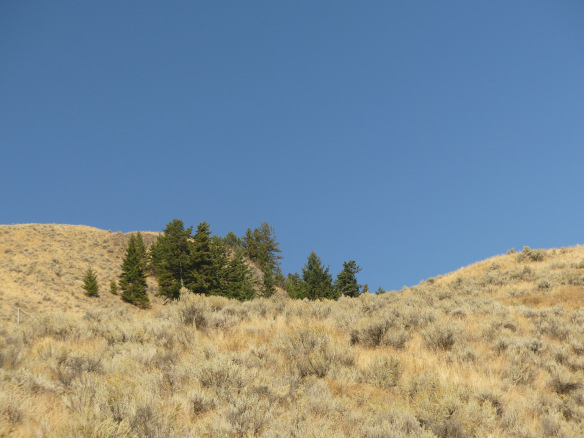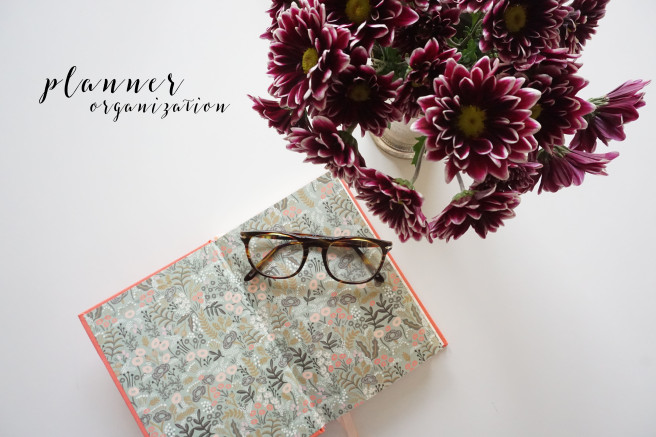THE CRYPT, CAPE TOWN — Jazz musicians say you must suffer to truly play jazz. Few can say they’ve suffered like any older, non-white jazz musician in South Africa.
“We were not allowed to play because of the color of our skin,” Spencer Mbadu told me.
“During apartheid days, it was difficult for black musicians, Most of us played behind curtains because if we were seen by the police, we would be arrested just for making people happy, just by playing music,” he said.
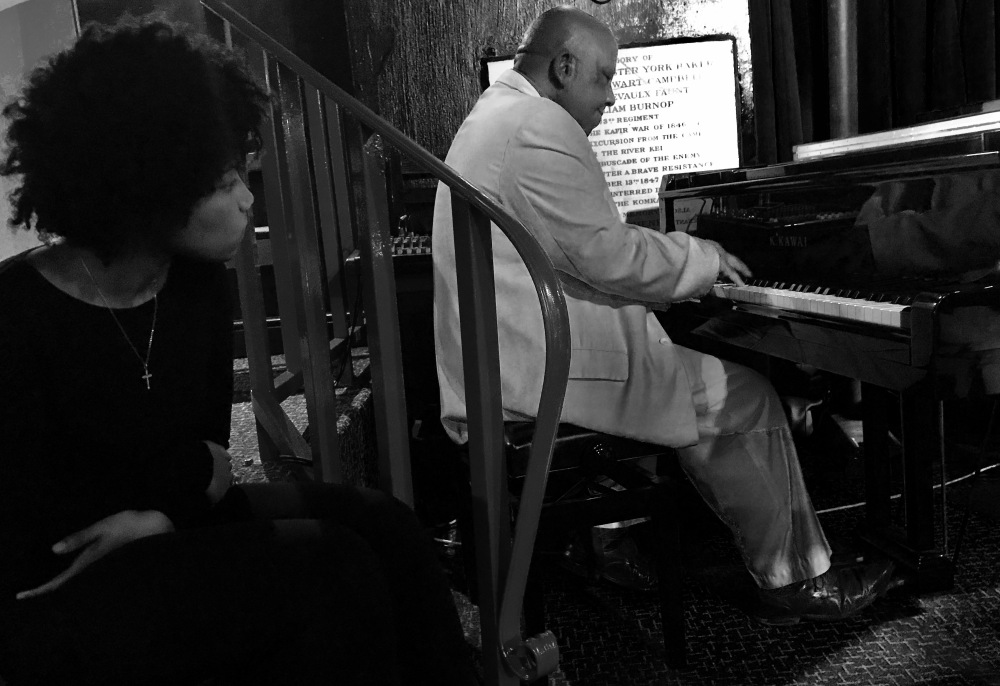 “One time, they were trying to arrest me. I had a Fender guitar case in my hands and this policeman was talking to me in Afrikaans and asking me where I was going. I pointed to the club where I was going to play and said, ‘That’s my work, boss!’ He thought I was trying to be smart with him and he wanted to hit me with his baton. I put the case down and took out my guitar and showed him the guitar and said, ‘Boss, look what I’m talking about! This is my job, boss; this is my job!’ Luckily they decided not to arrest me.
“One time, they were trying to arrest me. I had a Fender guitar case in my hands and this policeman was talking to me in Afrikaans and asking me where I was going. I pointed to the club where I was going to play and said, ‘That’s my work, boss!’ He thought I was trying to be smart with him and he wanted to hit me with his baton. I put the case down and took out my guitar and showed him the guitar and said, ‘Boss, look what I’m talking about! This is my job, boss; this is my job!’ Luckily they decided not to arrest me.
“It was a bit heavy during those days,” he said, “but we broke the chains and here we are.”
Spencer was into music very early: “I started kicking when I was in my mother’s womb!”
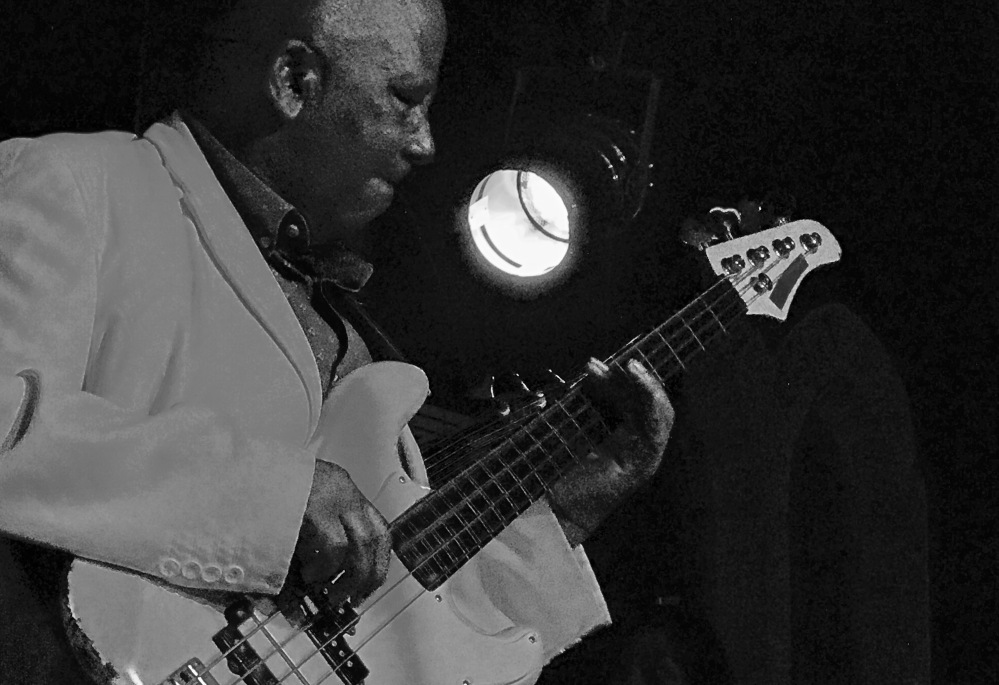
“I was four years of age when I started playing the flute, then a home-made guitar, and then I was introduced to piano by my grandmother who was a harp player at the church,” he said. “She taught me to play — I think I was seven or eight years by that time — and I never stopped after that.”
Today, Spencer is a super chill bass and piano player. He doesn’t grimace like some jazz players. He doesn’t rock back and forth or make any motions or gestures. He just smiles contentedly as he makes beautiful music.
He is also dedicated to developing the next generation of South African jazz musicians. The evening I saw him at the Crypt jazz club, he’d assembled a quartet: himself and three young aspiring female jazz players.

His mentees are learning their lessons well, honoring the old musical styles as well as the legacy of suffering under and then breaking apartheid while also bringing their own, still-developing style of jazz to their music.
“I acknowledge the heartache and the struggle through the music,” said 19-year-old pianist Noble Mazinya. “For example, we just played a song by Winston Mankunku, called “Yakhal’ Inkomo”. He wrote the song to sort of describe his struggle in apartheid in South Africa. I can feel that when I listen to the song and when I play it.
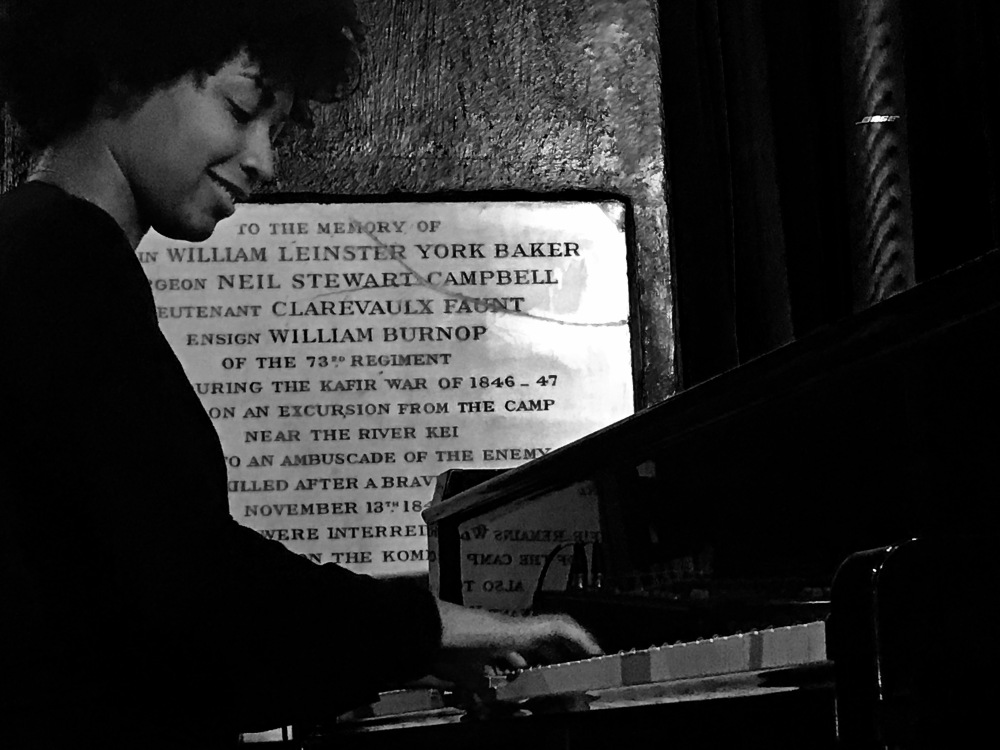 “I will never know what it’s like to go through the struggle, but I acknowledge it through the music. It’s a very powerful thing.
“I will never know what it’s like to go through the struggle, but I acknowledge it through the music. It’s a very powerful thing.
“Listening to that song, you can hear that it comes from a place of pain, but there’s a of love and beauty within it even though it comes from a dark place.
“I am aware of what happened in my country, and I feel blessed to be able to play that song in a free country.”
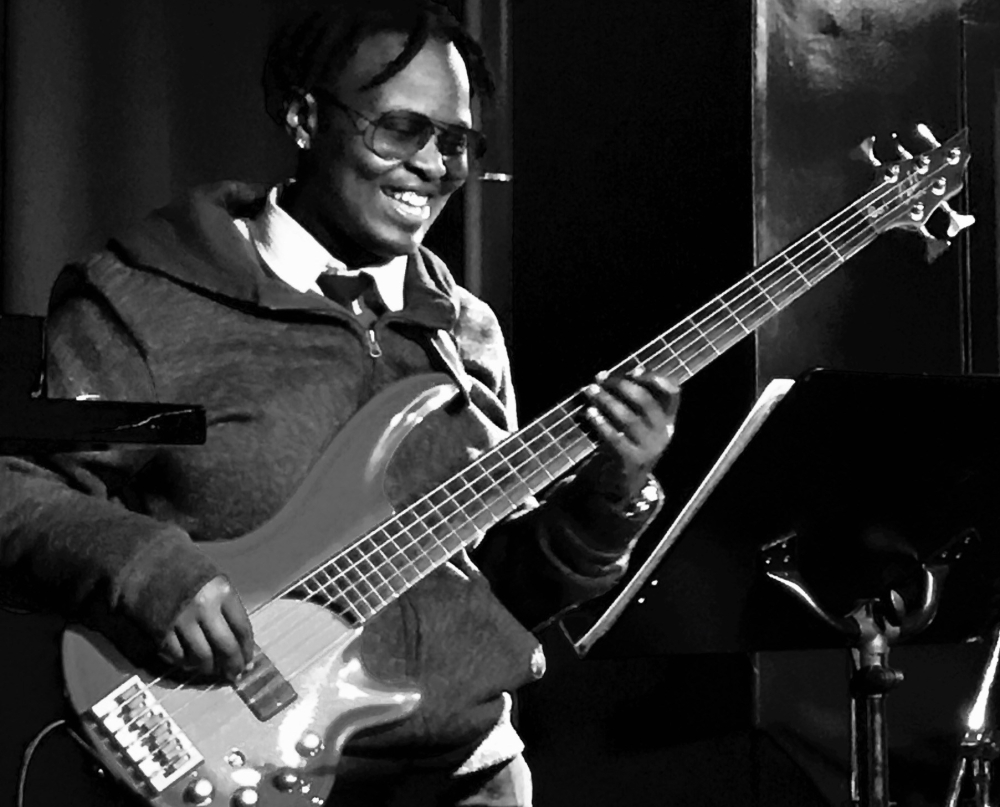
Bass player Tiana Marwanqana started young, too, attracted to the bass at a remarkably early age. “I remember the first time I heard jazz,” she told me. “I was four or five. I was in my dad’s car and a bass player name Sipho Gumede came on and the first song I heard him play was “Gabriel’s Garden”. That started the music bug for me.”
She says her love affair with the bass is hard to explain: “There’s something about the bass — the sound, the bliss I get playing it. It’s out of this world. It’s like clean, calm blue skies, a calm world where there is just me and the bass guitar, and that’s just it.”
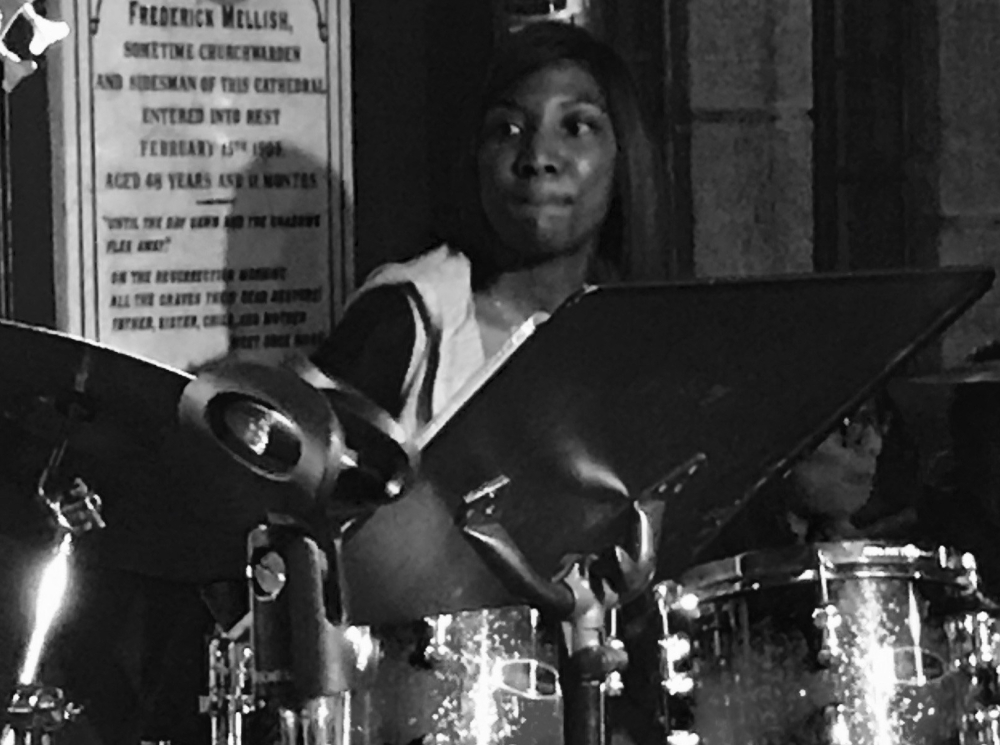
And the drummer also started young. “I started at age of 6 as a tambourine player in church and that gave me the timing,” said Shantay Phillips. I moved to jazz last year. You can express yourself in jazz. Its a natural thing from the inside outside. It’s happiness.”
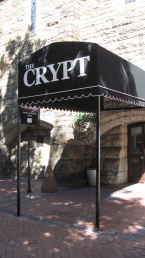 Address: 1 Wale St, Cape Town City Centre, Cape Town, 8000, South Africa
Address: 1 Wale St, Cape Town City Centre, Cape Town, 8000, South Africa
Hours: 7PM–12AM Tuesday through Saturday (closed Sunday and Monday)
Phone: +27 79 683 4658
Website: http://www.thecryptjazz.com
The Crypt is the basement of the St George’s Cathedral in Cape Town with stone walls and elegant stone arches. It is indeed a crypt, and it feels like a hallowed hall.
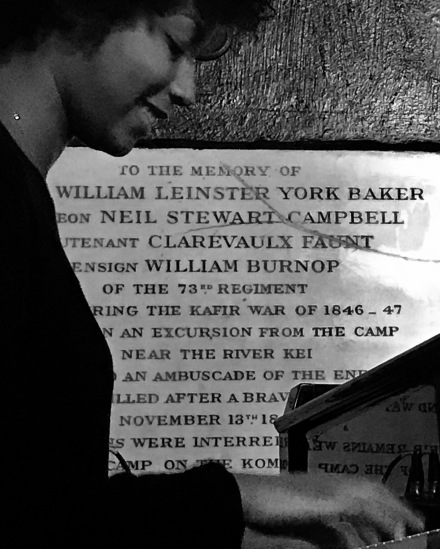 And it is, as evidenced by plaques on the walls of the crypt, One, rather ironically, the is a memorial to the British soldiers killed in “The Kafir Wars” or the Xhosa Wars, a series of nine conflicts from 1779 to 1879. The term “kafir” is the equivalent to the “n” word in the United States. To see a vibrant young black woman playing next to that word in a free South Africa is a powerful sight, indeed.
And it is, as evidenced by plaques on the walls of the crypt, One, rather ironically, the is a memorial to the British soldiers killed in “The Kafir Wars” or the Xhosa Wars, a series of nine conflicts from 1779 to 1879. The term “kafir” is the equivalent to the “n” word in the United States. To see a vibrant young black woman playing next to that word in a free South Africa is a powerful sight, indeed.
The Crypt owner, Derk Blaisse, has created a haven for jazz musicians and he schedules some of the best talent in South Africa to play there. He himself is an extremely talented paints as he demonstrated the night I visited.
His vision is shared by the Cathedral Dean, Michael Weeder, who happens to be a jazz enthusiast.
I cannot vouch for the food, but it looked fantastic (the menu is small but delightful) and patrons eagerly gobbled it up both nights I was there. I can attest to the quality of the coffee and the desserts (my favorite was the creme brûlée).
Share this:- More



